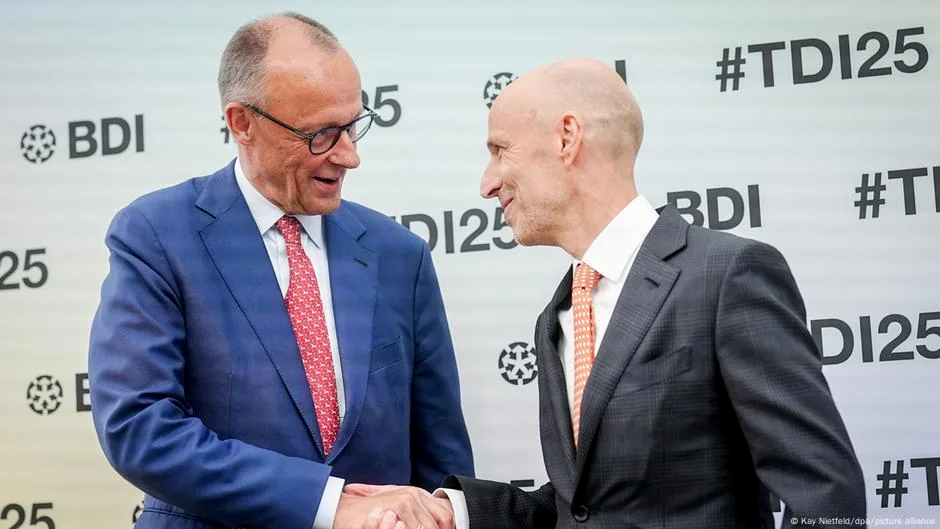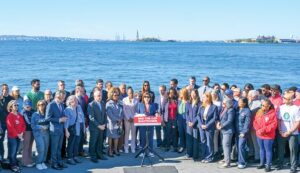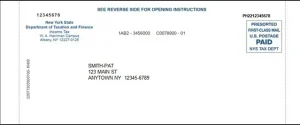War, tariffs: Germany still has a long way to go to recover from recession

German business leaders gather in Berlin every year for the so-called “Industry Days”, and politicians are not absent. Whether it is the chancellery, ministries or party headquarters, as long as they are invited by the influential Federation of German Industries (BDI), the top German politicians will attend without hesitation. This event fully reflects the current state of relations between government and business.
In 2023 and 2024, then-Chancellor Scholz had to face complaints from the business community about his traffic light government at the conference. Russia’s invasion of Ukraine, energy crises and inflation, high electricity prices and other issues have plunged Germany into a long-lasting recession.
Siegfried Russwurm, then-president of the Federation of German Industries, believes that these are Germany’s “lost years” as an industrial center and that the chancellery underestimated the seriousness of the situation. Chancellor Scholz retorted that he called it “the turning point years” and warned against devaluing Germany’s status as an industrial center.
Global crisis drags down the world economy
In 2025, the German economy is still in the doldrums. Peter Leibinger, the new president of the Federation of German Industries, predicted at the opening ceremony of the Industry Day that the German economy will not be able to recover this year. He pointed out that the global crisis is intensifying, and more and more flashpoints such as tariff disputes with the United States, wars with Israel and Iran, and US intervention have a negative impact on the global economy and global trade.
The business community is very worried about this. He said, “Our road out of recession will be longer and more difficult than we expected.”
Hope is everything
Despite this, the atmosphere in the German business community is much better than last year. This is thanks to the new German government and its policies to reduce the burden on companies. “The signs are good,” Leibinger said. He praised the new ruling coalition formed by the Union Party and the Social Democratic Party, believing that he could see that the new government was aware of the urgency of the matter, “which is different from the past.”
One of the first legislative proposals being discussed in the Bundestag is the so-called growth booster, a package of tax cuts for companies to promote investment. “Germany has not reduced taxes for 20 years, and now we will do it,” Chancellor Merz said at the German Industry Day.
He said this would restore Germany’s competitiveness as an industrial center. He was clearly pleased with the positive feedback he received: “Yes, we are starting over now, we are doing this with a new spirit, we know what to do.”
States and localities are reluctant to pay
However, things are not as smooth as Merz said. If companies pay less tax, the federal government and state and local governments will have a large tax gap of about 48 billion euros. The states and localities are unwilling to accept this situation and ask the federal government to pay, after all, this is the law made by the federal government.
But the federal finances are also stretched. Although defense spending can be solved by higher debt in the future, a total of 500 billion euros will be loaned to infrastructure construction in the next 12 years, but in many other areas, savings have to be made. Almost all political plans in the coalition agreement between the Union Party and the Social Democratic Party have financial restrictions.
Investors are urgently needed
In this case, it is even more necessary to achieve economic recovery as soon as possible. The better the economy, the higher the country’s tax revenue. Finance Minister and Deputy Prime Minister Lars Klingbeil hopes for foreign investors. “At a time of growing uncertainty across the Atlantic, we are sending a clear signal to investors that it is worth investing in Germany, that we are a safe haven, a stable, well-functioning legal state and a free society,” he said.
One more thing: lower energy prices. Klingbeil told company managers that the German government has decided to lower electricity and gas prices. He said the planned infrastructure investment program is also aimed at attracting investors. “I hope the excavators will start working soon.” “Roads, railways, bridges, digital technology facilities, energy and heating networks all need to be modernized and expanded.
“This is crucial to ensure our economic performance – sustainable, safe and punctual mobility, electronic management, developed charging facilities and networks, infrastructure that the country can be proud of,” said Klingbeil.
Fighting Germany’s bureaucracy
The business community has repeatedly complained about high administrative costs. Chancellor Merz analyzed the bureaucratic “regulatory jungle” at Industry Day and said that this phenomenon has emerged due to the increasing emphasis on preventive measures. “It has to be foolproof. All risks are foreseen and eliminated from the outset – it’s just that this may lead to our inability to act.” He said that other countries rely more on the principle of responsibility. “You can do a lot of things and try a lot of ways. If something goes wrong, the people affected will be held responsible.” Merz believes that this spirit must also be restored in Germany.
US tariffs: criticism of the EU
However, whether and when the economy recovers does not entirely depend on the new government. The Federation of German Industries believes that the tariff dispute with the United States poses a particularly large risk. Leibinger said that if the US tariffs really take effect, it may cause Germany’s economic growth rate to lose 0.3 percentage points.
Against this background, the German Chancellor criticized the EU’s negotiating style. He said that the EU’s negotiations are too complicated, and it is wrong to negotiate hundreds of customs regulations with the United States at the same time. The Americans are only focused on reaching an agreement with us on four or five industries, and this must be respected.
Reach an agreement as soon as possible in the core areas
“We don’t want the best, but the most important necessities: cars, chemicals, pharmaceuticals, mechanical engineering. These areas are vital to us – steel and aluminum. We now need to reach an agreement with the Americans quickly.|
The business community also wants this and reminds the political world to implement the statement as soon as possible. Merz also knows this. He compares people’s expectations to stock prices: if there are expectations, the stock market will go up. “We can’t let expectations go.” He said. Merz hopes that a preliminary assessment will be made by 2026 at the latest, on the next German Industry Day.
![]()







